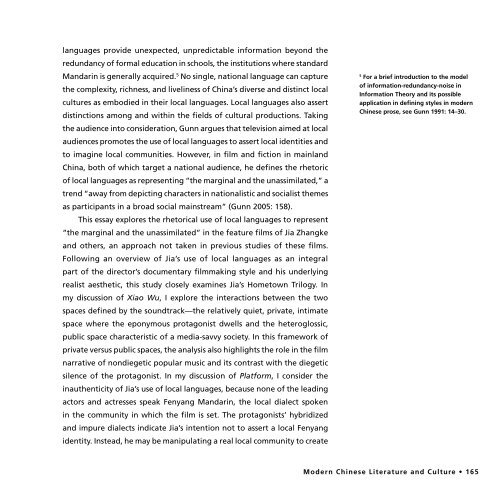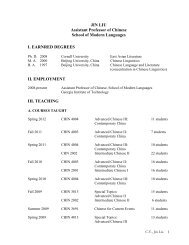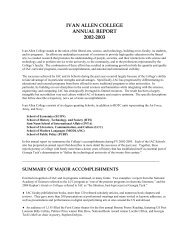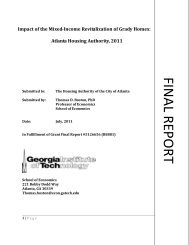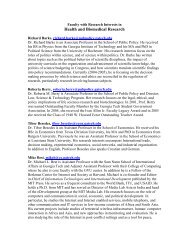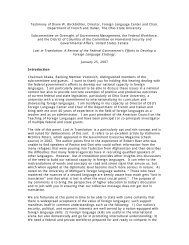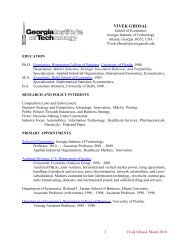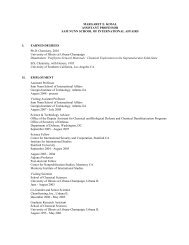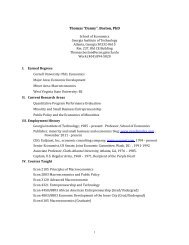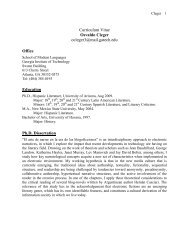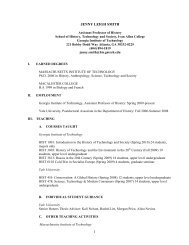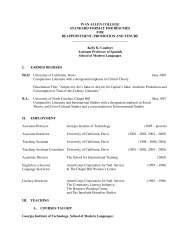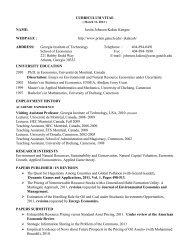Read this paper
Read this paper
Read this paper
You also want an ePaper? Increase the reach of your titles
YUMPU automatically turns print PDFs into web optimized ePapers that Google loves.
languages provide unexpected, unpredictable information beyond the<br />
redundancy of formal education in schools, the institutions where standard<br />
Mandarin is generally acquired. 5 No single, national language can capture<br />
the complexity, richness, and liveliness of China’s diverse and distinct local<br />
cultures as embodied in their local languages. Local languages also assert<br />
distinctions among and within the fields of cultural productions. Taking<br />
the audience into consideration, Gunn argues that television aimed at local<br />
audiences promotes the use of local languages to assert local identities and<br />
to imagine local communities. However, in film and fiction in mainland<br />
China, both of which target a national audience, he defines the rhetoric<br />
of local languages as representing “the marginal and the unassimilated,” a<br />
trend “away from depicting characters in nationalistic and socialist themes<br />
as participants in a broad social mainstream” (Gunn 2005: 158).<br />
This essay explores the rhetorical use of local languages to represent<br />
“the marginal and the unassimilated” in the feature films of Jia Zhangke<br />
and others, an approach not taken in previous studies of these films.<br />
Following an overview of Jia’s use of local languages as an integral<br />
part of the director’s documentary filmmaking style and his underlying<br />
realist aesthetic, <strong>this</strong> study closely examines Jia’s Hometown Trilogy. In<br />
my discussion of Xiao Wu, I explore the interactions between the two<br />
spaces defined by the soundtrack—the relatively quiet, private, intimate<br />
space where the eponymous protagonist dwells and the heteroglossic,<br />
public space characteristic of a media-savvy society. In <strong>this</strong> framework of<br />
private versus public spaces, the analysis also highlights the role in the film<br />
narrative of nondiegetic popular music and its contrast with the diegetic<br />
silence of the protagonist. In my discussion of Platform, I consider the<br />
inauthenticity of Jia’s use of local languages, because none of the leading<br />
actors and actresses speak Fenyang Mandarin, the local dialect spoken<br />
in the community in which the film is set. The protagonists’ hybridized<br />
and impure dialects indicate Jia’s intention not to assert a local Fenyang<br />
identity. Instead, he may be manipulating a real local community to create<br />
5<br />
For a brief introduction to the model<br />
of information-redundancy-noise in<br />
Information Theory and its possible<br />
application in defining styles in modern<br />
Chinese prose, see Gunn 1991: 14–30.<br />
Modern Chinese Literature and Culture • 165<br />
MCLC 18.2.indd 165<br />
12/20/06 2:01:34 PM


